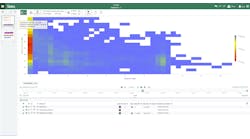A couple years ago when John Berra was retiring as chairman of Emerson Process Management, he told the story of his meeting with a plant manager, who told him, "I just want you to know that I think all automation projects have zero ROI." I wondered whether the guy was still blending leaded gasoline. Can a plant manager really be that clueless? Some of you may be muttering, "You have no idea."
[pullquote]But before you dismiss the effort of selling this idea of techs "owning" their systems as tilting at windmills, I suggest that we can make the value proposition in a way management is more likely to grasp. One might protest, "It's their job to understand us," but for the most part, they're not in a higher pay grade because their job is simple or easy. Sometimes we have to meet them more than half way.
Our profession has the pleasure of actually applying tools and technology directly to the process. We have a geek's paradise of gadgets, computers and contraptions, and we can be spoiled divas with our suppliers if we're so inclined. Often we're so immersed in the technology that we forget that it's a means to an end. It took me quite a few years to come to the realization that measurements and controls weren't an end in themselves, but a set of tools and technologies we provided to the enterprise. I'm just a link in the chain of delivering value to the end user.
Once one enters the realm of management, all your achievements are through others. Your influence is not exerted with the certainty of a mouse click, but with the fleeting hope your reports will keep your ship off the rocks and sailing into calm harbors. You accomplish this through policies, emails, staff meetings and performance appraisals, all through interactions with people, not specifications, technology and machines. It may not be highly technical, but it's far from uncomplicated. So when you're talking to your manager, you benefit from keeping the value proposition succinct.
Running a process plant is risky. Managers are paid the big bucks to make decisions that many times boil down to "how much insurance do I want to buy?" For example, how many spare parts do I need to buy, manage and keep in stock? When the plant goes down, or I lose production, or I have to rerun off-spec material and disappoint a customer, will my judgment be found lacking?
Asset management is risk management. Our instrument asset management value proposition should be simple and conveyed in five PowerPoint slides or less (the higher up the management ladder you're making your pitch, the fewer the slides). It should go something like this: because we've learned to pay attention to the alerts from our intelligent devices, we will keep our plant on-line when the other guys are down; we will be safer and in compliance when the other guy is running blind; we can prevent the flare from blazing for days because someone believed a bogus or stale number; but to do this, we need people in roles that are devoted to creating and maintaining the infrastructure to bring in field diagnostics, and then to organize, prioritize and report on them.
The ROI from this effort isn't easy to quantify. It's always tough to put a number on the shutdown that didn't happen. Next month: quantifying diagnostics' payback.






